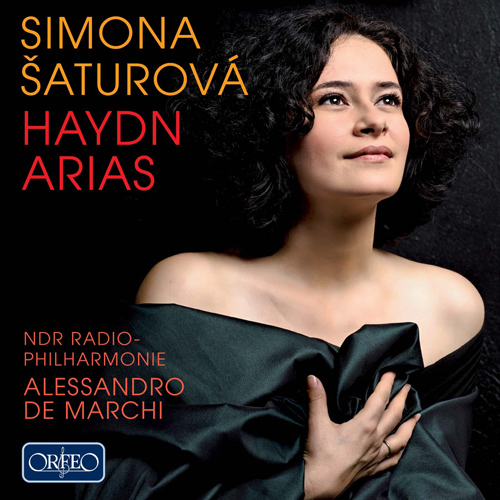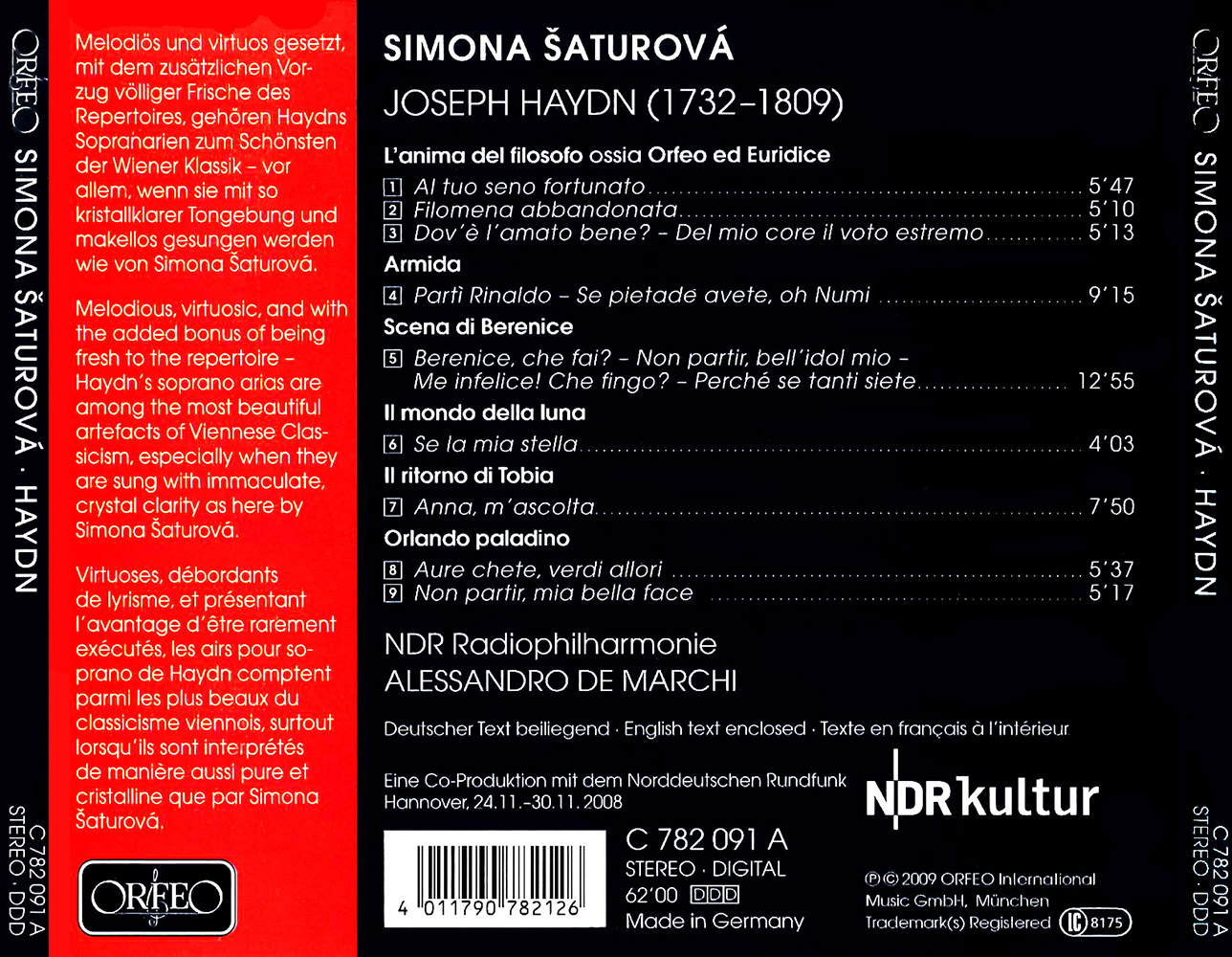Composer(s):
Conductor(s):
Orchestra(s):
Artist(s):
Genre(s):
Choral - Sacred; Opera; Vocal
Period(s):
Classical (1750-1830)
Label:
Orfeo
Catalogue No:
C782091A
Barcode:
4011790782126
Release Date:
01/2009
Available Format(s):
CD
Haydn: Arias
L'anima del filosofo, ossia Orfeo ed Euridice, Hob. XXVIII:13 (excerpts)
Armida, Hob.XXVIII:12, Act I: Parti Rinaldo - Se pietade avete, oh numi
Berenice, che fai, Hob.XXIVa:10
Il mondo della luna, Hob.XXVIII:7, Act II: Se la mia stella
Il ritorno di Tobia (The Return of Tobias), Hob. XXI:1, Part I: Aria: Anna, m'ascolta!
Orlando paladino, Hob. XXVIII:11 (excerpts)
Total Playing Time: 01:01:07

















